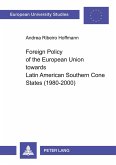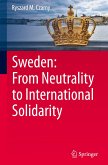How do powerful rural sectors turn wealth into political clout and when do they fail? This book offers a comparative account of business power that speaks to political scientists well beyond agricultural policy. Tracing Argentina and Brazil during the 2000s commodity boom, it shows how economic geography, federal institutions, and party systems combine to create (or block) institutionalized political resources : durable legislative footholds that let elites shape national policy even under redistributive governments. Using the soy sector as a strategic case, the book explains why Argentina imposed and sustained a 35% export tax, while in Brazil agrarian interests repeatedly vetoed or watered down regulation. The analysis blends multi-year fieldwork with original legislative and production data. Linking business power, territorial politics, and comparative institutions, the book qualifies resource-curse arguments by showing how commodity prices shocks impact are decisively mediated by domestic political dynamics.
Bitte wählen Sie Ihr Anliegen aus.
Rechnungen
Retourenschein anfordern
Bestellstatus
Storno








